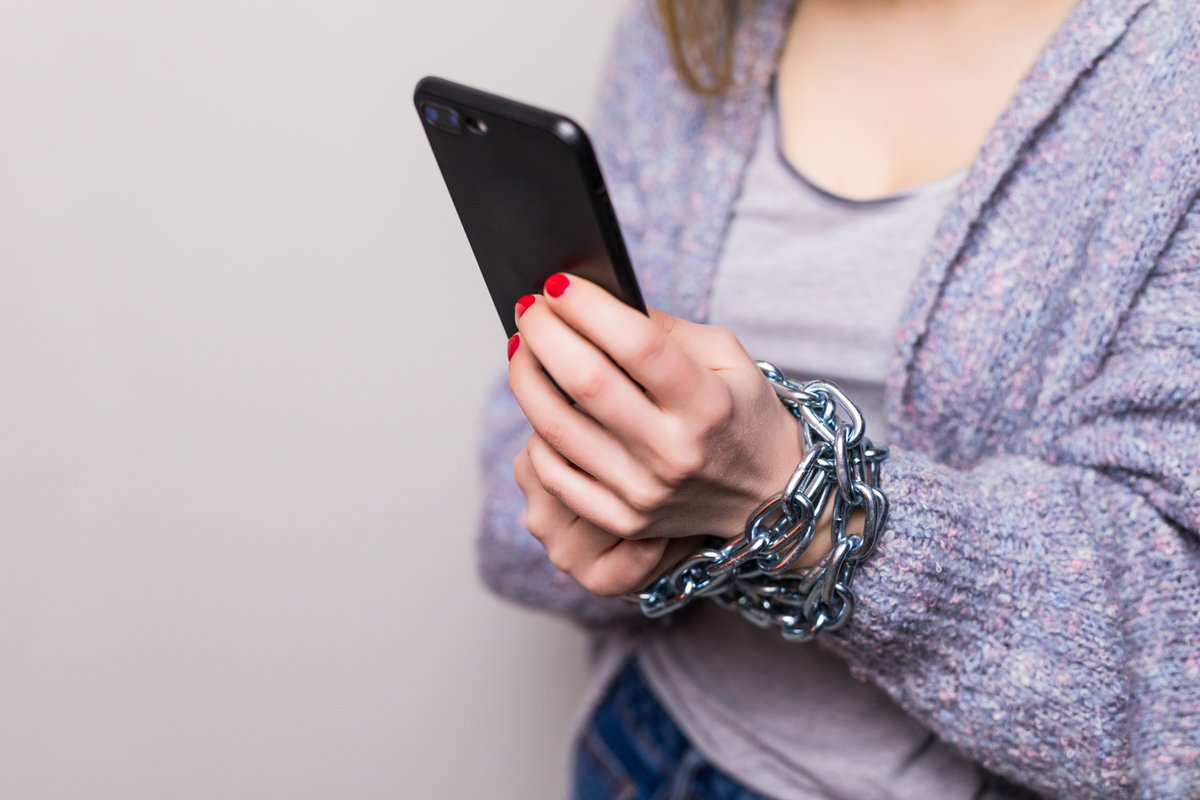American adults already spent a shocking 12 hours a day on the internet — on average — before COVID-19 so quickly invaded and radically transformed our lives. Post-2020, data collected by the Washington Post estimates, many are glued to their screens a shocking 16 hours a day. For the math-challenged among us, that indeed amounts to literally all of your waking hours if you're getting the recommended eight hours of sleep.

Research has predicted that a return to normal, or at least a "new normal", isn't simply going to reserve that trend. People are expected to spend 11 percent more time on the internet even in a post-pandemic world. This global issue has been highlighted in European data as well, which has shown that schoolchildren thought they spent excessive amounts of time on the internet. Gaming addiction among children is not new, but youngsters' own concerns about internet use should wake us all up.
What would the diagnostic criteria for a screen addiction be?
The current version of the Diagnostic and Statistical Manual of Mental Disorders, the DSM-5 that's better known as the "psychology Bible", includes handy diagnostic checklists for plenty of addictions. Internet or screen addiction isn't one of them, however. Addictions can be broadly classified into behavioral and substance addictions, and gambling disorder is the only behavioral addiction currently recognized in the DSM. However, all addictions share common symptoms and broadly similar diagnostic criteria.
If screen addiction were recognized as a clinical entity, as some research studies do, the diagnostic criteria would look a lot like those for gambling disorder, here "translated" to the context of screen use instead:
- Over the course of at least a 12-month period, your screen use has been persistently problematic. This can manifest as spending much of your time thinking about the internet, needing to be online more to get the same "feel-good" rush from it as before, unsuccessfully having made attempts to cut back on internet use, and growing restless and moody when you do attempt to step back. (These would be "cravings".)
- You lie about the extent of your internet use, or try to conceal it.
- You turn to the internet whenever you feel happy or stressed.
- Your internet use interferes with your responsibilities towards your household, family, work, or studies. That generally means you often engage in non-work screen time instead of working or studying, and your dependence on the internet has damaged important relationships in your life. You may have lost money or even your job because of your addiction.
- Your internet use is not better explained by other underlying causes.
Are you suffering from a screen addiction?
If you're working, communicating with loved ones you cannot see in person, or taking care of personal tasks like taxes and banking, and you then also spend much of your free time relaxing with the help of internet gaming or TV shows, you're not alone. In fact, you're probably rather typical. You may be suffering from an unhealthy work-life balance. You almost certainly benefit from spending more time away from screens, not least for your physical health. If the things you are doing on your screens are the very same things you'd have done away from them before COVID, and you would absolutely go to the cinema or lie on a beach in Greece instead if you could, you are almost certainly not addicted to internet use.
If you launch your favorite game as soon as you get up and skip your online class or work meeting because you just can't get away from it, or you're spending all your time debating people on Facebook or Twitter rather than cooking dinner or tidying your home, you may have a problem.
An addiction would be a situation in which you feel compelled to keep engaging in the behavior despite it having a negative impact on your health and the rest of your life, after all. People in the first category still need to see how they can reorder their lives, but their problem is not screen addiction — it's living in a strange era.
How to find a balance between responsible media usage and overuse?
- Craft a realistic schedule for work, study, or both, and stick to it. Only be available during the hours you are required to be available, and switch off from your online work outside of those hours. That includes answering emails or quick messages.
- Give yourself a "time budget" for online entertainment, such as social media, videos and shows, and gaming, and stick to that, too.
- Figure out any particular problem areas. For many, those will be gaming or social media addiction.
- Make sure that you get up from your desk at least once every hour to stretch your legs for five minutes or more. Sign off an hour before bedtime to read a book, do some meditation or yoga, or have a nice bath. Don't switch your devices on as soon as you get up. Don't eat at your desk, but with other people if possible.
- Whenever you have the opportunity, engage in non-screen activities.
Those people who know they have a problem should certainly seek help. That help may lie in therapy for screen addiction, in finding a new job, or in establishing boundaries. In this modern world, only you can determine the answer.


Your thoughts on this